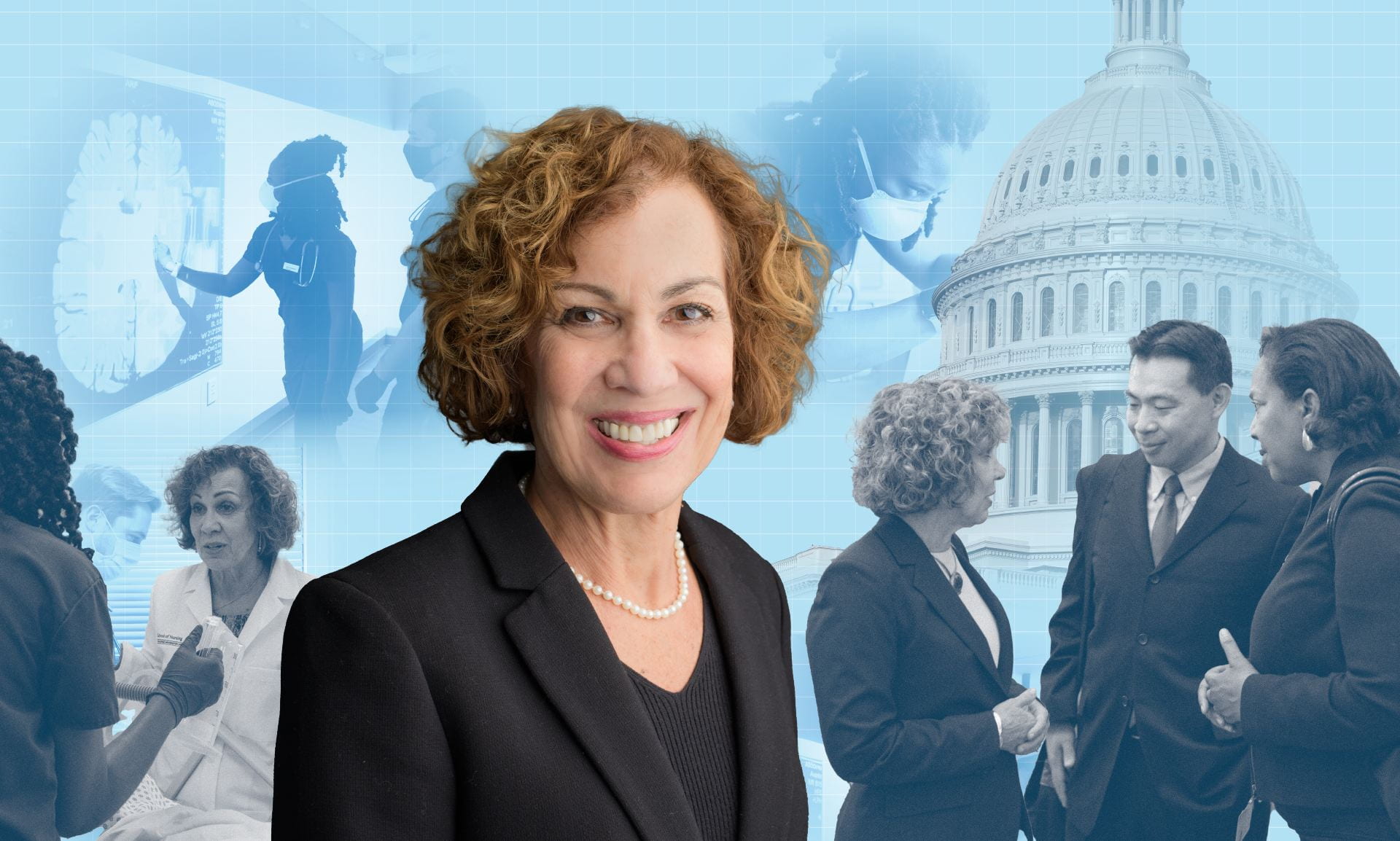There is no neutral space between racism and antiracism, according to Ibram X. Kendi, a history professor at Boston University and author of “How to Be an Antiracist” (2019). One is either racist and endorses the idea of racial hierarchy, or one is antiracist and endorses racial equality.
Racism is a public health issue, and a dedicated group of GW Nursing students wants to address and resolve the racism that exists in health care institutions through the formation of a new student group, the Antiracism Nursing Students Alliance (ANSA).
While health care providers, educators, and researchers have focused on reducing health disparities for many years, a primary driver of those disparities—structural racism—has been absent from the conversation.
Last fall, Lynette Flaherty Glover, BSN ’22, and Madison Upshaw, BSN ’21, approached Sandra Davis, Ph.D., DPM, ACNP-BC, GW Nursing’s former assistant dean for diversity, equity, and inclusion, with their idea to form a student group. They had already been involved in the White Coats for Black Lives student organization at GW School of Medicine and Health Sciences, but wanted a group that focused on the nursing school.
Dr. Davis put the two in touch with other advocacy-minded students, and the group officially launched last December. “We all came with our ideas of things we want to change in the nursing program and in general to raise awareness of racism in health care,” Mrs. Glover says. “How can we educate the future health care workers on solutions to what they can do to help be an ally?”
“How can we educate the future health care workers on solutions to what they can do to help be an ally?”
– Lynette Flaherty Glover, BSN ’22
The group developed plans to host a speaker series to address historical racism in health care and encourage meaningful discussions. They welcomed two GW faculty members to speak in the spring semester. Nemata Blyden, Ph.D., a professor in the GW Department of History, presented the inaugural lecture in January, celebrating the life and legacy of Dr. Martin Luther King, Jr. Sherrie Wallington, Ph.D., an assistant professor and health disparities researcher at GW Nursing, discussed her research findings on the social determinants of health and health disparities.
Several of the ANSA founding members have experienced racism because of their ethnicity, while others were recently drawn to advocacy work after the high profile Black Lives Matter protests of 2020. Billy Baron, BSN ’21, admits to having grown up in “a bubble under a rock,” but was deeply affected by the protests after police officers killed George Floyd. “I lived four blocks from the Capitol building when a lot of the riots happened,” Mr. Baron recalls. “I felt very paralyzed, I couldn’t think, I just laid in bed, I didn’t know what was happening to me.”
“I spent the first sessions listening, but near the end of the sessions I was a main speaker, talking and challenging a lot of the faculty members with questions.”
– Billy Baron, BSN ’21
In-person instruction and clinical rotations were canceled due to COVID-19, and Mr. Baron was worried about how his mental health would affect his class work. After confiding in Dr. Davis about his concerns, she invited him to participate in Continuing the Conversation, a series of open forums that took place virtually at the school throughout the summer. “I went to every single one,” Mr. Baron says. “I spent the first sessions listening, but near the end of the sessions I was a main speaker, talking and challenging a lot of the faculty members with questions.”
Mr. Baron channeled his new passion for antiracism and social justice into shaping the goals of ANSA. Fellow founding member Kimberley Hollingsworth, BSN ’21, believes that GW Nursing students want to understand racial biases, and a major goal of ANSA is to shed light on the issue and get more people involved.
“A lot of staff and faculty aren’t very aware of the racial biases that a lot of these [minority] students go through,” Mrs. Hollingsworth says. As an Afro-Latina, she experienced racism in her own work as a patient care technician, phlebotomist, and testing site coordinator. “Based on the color of my skin and being a woman, of course there’s a lot of racism,” Mrs. Hollingsworth says. “I was passed over for promotions just because—there wasn’t a valid reason given. But I see my white counterparts who haven’t had nearly the same [work] experience get moved on.”
Mrs. Hollingsworth has witnessed similar situations in the classroom setting. “I have seen white [students] get graded differently or have certain opportunities that were not awarded to minority students,” she adds. “Everyone should be treated fairly all across the board. I feel as minorities we have to work twice as hard just to succeed.”
Exhorting the school to acknowledge the racism that its own students experience was a driving force behind the interest of Mimi Bui, BSN ’21, in the group. “The nursing school needs to be much more cognizant of the challenges that their nonwhite students face every day—financial challenges, language barriers, all that kind of stuff,” Ms. Bui says.
“The nursing school needs to be much more cognizant of the challenges that their non-white students face every day—financial challenges, language barriers, all that kind of stuff.”
– Mimi Bui, BSN ’21
Addressing systemic racism at large educational institutions can be fraught. Even acknowledging racism as a cause of health disparities has not been widely embraced. When Mrs. Glover was pursuing her associate’s degree at a community college, she was dismayed when her nursing instructors discussed the various chronic conditions from which Black females are at a higher risk of dying. “They never talked about why—in some ways, it was kind of brushed off,” she recalls.
Mrs. Glover is pursuing a nursing degree because she felt discriminated against as a Black female patient. “I wanted to be part of the change I wanted to see in the world,” she explains.
In addition to the challenge of dismantling systemic racism, the students of ANSA struggle with simply finding the capacity to devote to the group on top of their coursework and personal obligations. The Accelerated B.S.N. program spans just 15 months, a short amount of time to meaningfully engage in an extracurricular organization.
The founding members are working with GW Nursing faculty and staff to help advance ANSA’s mission as students cycle in and out of the school. “Having people like myself and others on this board who can actually speak up about [antiracism], and be able to go out there and advocate, that’s what I hope GW Nursing will continue when I leave the school,” Ms. Hollingsworth says.
Founding Members
Watch video introductions directly from ANSA’s founding members to learn why they’re part of the Alliance.
Contact ANSA
Students interested in ANSA can email gwsonansa@gmail.com to learn about upcoming meetings and events
AUTHOR Meredith Lidard Kleeman

